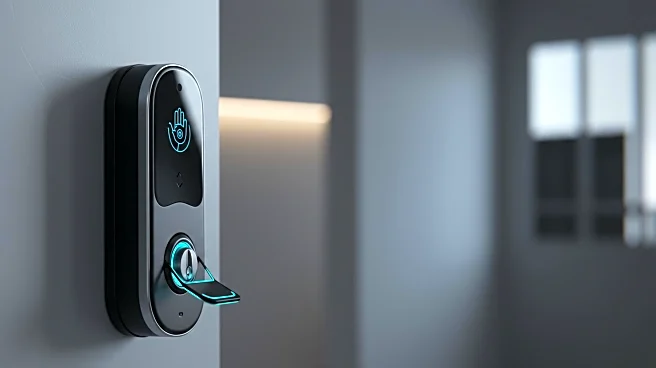What's Happening?
TCL has launched the D2 Pro, a new smart lock featuring palm vein scanning technology for secure and quick access. The lock uses near-infrared light to read the unique pattern of blood vessels in the user's hand, offering a high level of security with 99.9999% accuracy. This biometric data is stored locally on the device, ensuring privacy and functionality even without an internet connection. The D2 Pro can be unlocked in multiple ways, including palm scanning, a number pad, physical keys, and app control via Google Home or Amazon Alexa. Despite its innovative technology, the lock faces limitations in smart home platform support and customization options.
Why It's Important?
The introduction of palm vein scanning technology in smart locks represents a significant advancement in home security, offering a more secure alternative to traditional fingerprint sensors. This technology could influence the smart home industry by setting new standards for biometric authentication. The D2 Pro's affordability compared to similar products makes advanced security accessible to a broader audience, potentially increasing consumer adoption of smart home devices. However, the lack of support for platforms like Apple Home and the Matter standard may limit its integration into existing smart home ecosystems.
What's Next?
TCL plans to enhance the D2 Pro's compatibility with smart home platforms, including future support for Apple Home. The company is also working on improving local control capabilities, which would allow the lock to function independently of internet connectivity. As the smart home industry evolves, TCL's focus on expanding platform support and refining its technology could position the D2 Pro as a competitive option in the market.
Beyond the Headlines
The use of palm vein scanning technology raises questions about privacy and data security, as biometric data becomes increasingly integral to everyday devices. The D2 Pro's local data storage addresses some privacy concerns, but broader industry standards and regulations may be necessary to ensure consumer trust. Additionally, the integration of advanced biometric technology into affordable products could democratize access to high-security solutions, influencing societal norms around home security.









